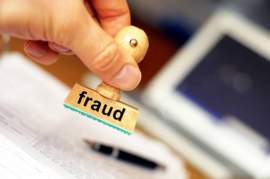
Significant Examples of Bribery

Bribery in the medical profession can lead to terrible consequences, undermining the legitimacy of any given doctor's medial decisions. Even more innocuous gifts from pharmaceutical companies to doctors can have the effects of full-fledged bribery in influencing doctors towards making different, and perhaps worse, decisions.
This is part of the reason why providing direct examples of pharmaceutical companies bribing doctors is difficult. Though it assuredly happens, pharmaceutical companies do not wish to be charged with bribery, so they search for alternate means to achieve the same results. Non-obvious forms of bribing, like small gifts, can be used for much the same purpose.
As an example of such "bribing" and its effects, consider a situation in which a doctor has been given all sorts of small gifts from pharmaceutical companies. These are not major gifts, not valued highly in cash, or otherwise. They cannot be considered "bribing" from the more traditional point of view, especially because they really are gifts: the pharmaceutical company simply gave the doctor a free pen, no strings attached.
But then, when he goes to write a note, he's writing it with a pen that blares the name of a pharmaceutical company on the side. He's writing on a pad with the name of a drug watermarked into the paper. He reaches for his mouse and sees the mousepad underneath, emblazoned with the logo and curly font of another pharmaceutical company's cash cow drug. It's not hard to believe, then, that when this doctor goes to write a prescription, his mind is going to drift to the names he sees on the objects he uses every day.
While the pharmaceutical companies cannot be charged with bribery for giving out these objects, they are assuredly given out with the intent of influencing doctors, almost as a form of constant marketing, aimed at the physicians themselves.
If the pharmaceutical companies give out free samples, then the doctors are likely to be all the more influenced. A doctor who has a number of free samples to give out to his patients is entirely likely to prescribe those, first, as he will be saving his patients the cost of buying a drug, and the free sample may very well work.
But at the same time, often enough doctors will prescribe from their supply of free samples instead of necessarily making the best decision and prescribing a drug that is more likely to help the doctor's patient. So even if the doctor is not actively making decisions to act improperly, as he would be if he were complicit in out and out bribing, the doctor can still be doing exactly what the pharmaceutical company would want him or her to do without ever once having had to take the chance of being charged with bribery.
Essentially, pharmaceutical companies use such methods in order to achieve the effects of bribery, without the risks. Practices such as these need to be, at the very least, examined and, at the very worst, eliminated. Such procedures have already begun, as the Pharmaceutical Research and Manufacturers of America has issued a voluntary code of conduct for pharmaceutical companies to follow which would eliminate the distribution of such small, branded trinkets.
But many of the other forms of non-bribery bribing still remain, such as free samples, bought meals, and expensive consultations, nor does the new code apply to medical device manufacturers. A first step has been taken, but a long way is left to go.
NEXT: The Facts on Looting of Industrial Resouces





















